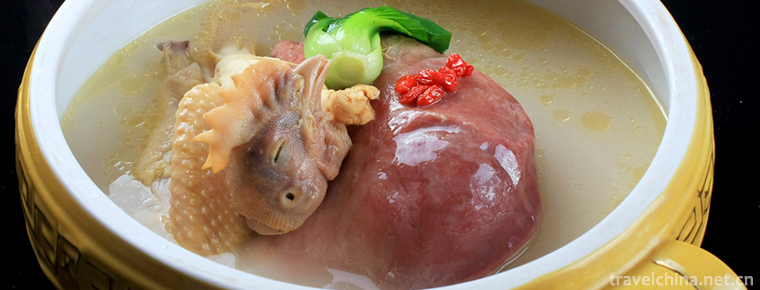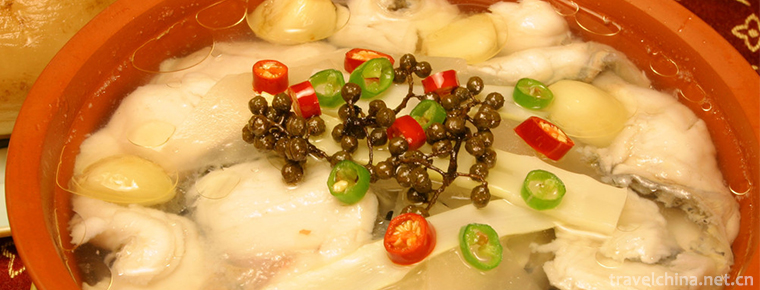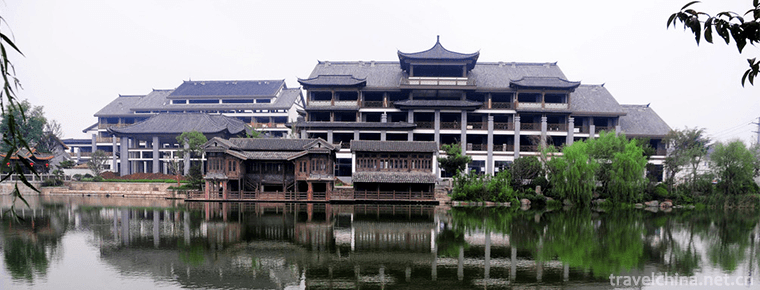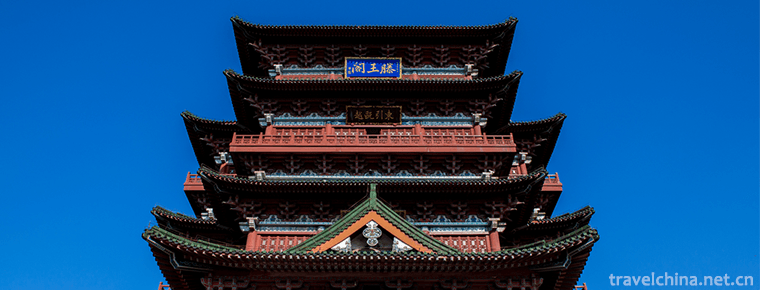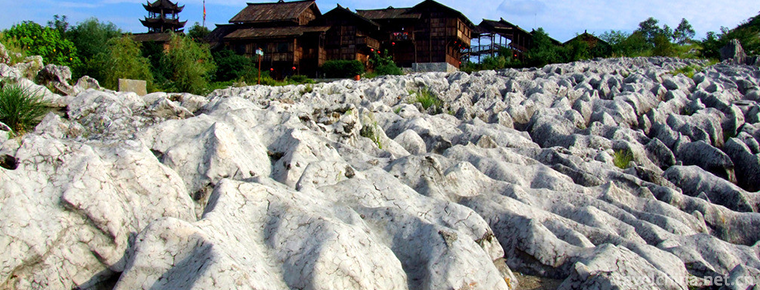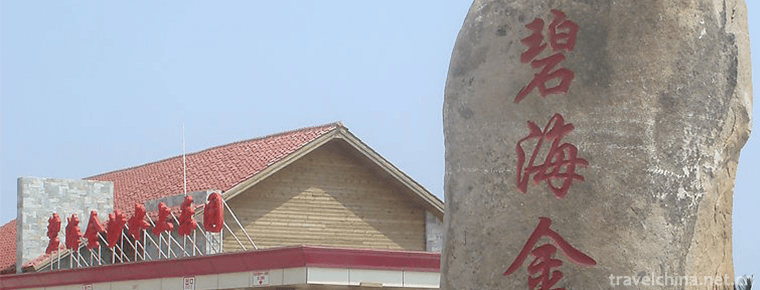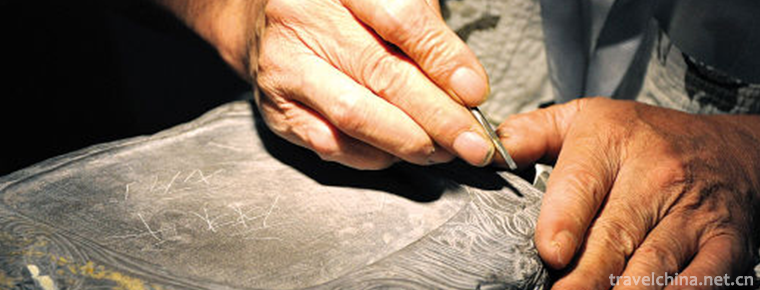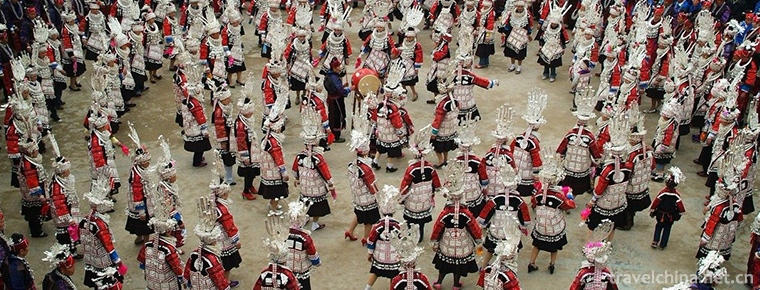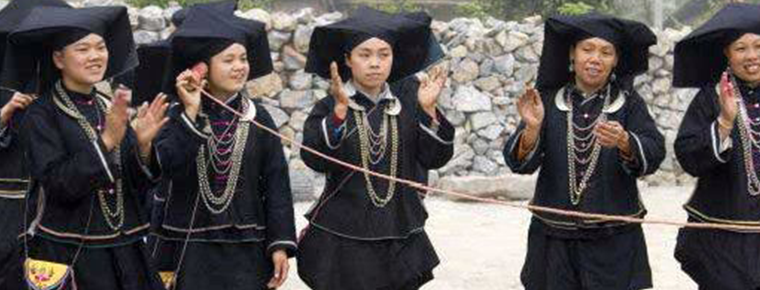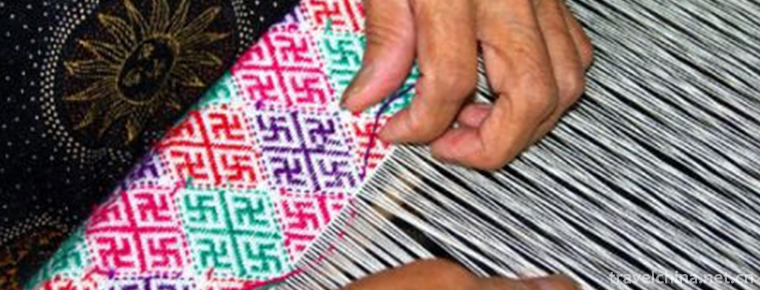Free and unfettered hu hot soup
The authentic Xiaoyao Town Hu Hot Soup, produced in Xiaoyao Town, Xihua County, Zhoukou City, Henan Province, is a famous snack in China and ten famous snacks in Henan Province. Xiaoyao Town Hu hot soup, the first batch of selected Henan old brands. Xiaoyao is a famous town in Zhongzhou. It has a long history. It was built in the Jianan period of the Eastern Han Dynasty. Its first name is Xiaotao. It passes by Yinghe Town and Yinghe Town, also known as Heliu Town.
Qingshui County was established here in the late Song Dynasty. During the Ming and Qing Dynasties, it became an important commercial port connecting the upstream and downstream of Shahe River. It was called the "Four Big Wharfs" of Shahe River with Luohe, Zhoukou and Jieshou. Wang Zhixian, an official here, was impressed by the gathering of local boat collections and the prosperity of business, and wrote poems and praises. Among them, there is the phrase "when the weather and the earth are right, people will be happy and happy for four years". Therefore, Xiaoyao is named after it and has been used up to now. According to the County Chronicle, when Xiaoyao Town was most prosperous, "people gathered together, streets stretched vertically and horizontally", "more than ten miles around, three sides of the river, boat spokes, fireworks and thousands of families, dense Eucalyptus trees", it was really "land and water rendezvous, wealth accumulation. In 1992, it was named "Zhongzhou Famous Town" by Henan Provincial Construction Department. It is one of the ten famous towns in Henan Province. The soup of Xiaoyao Zhenhu Hot Decoction is made up of more than ten kinds of precious traditional Chinese medicines. Authentic Xiaoyao Town Hu Hot Tang is said to have originated in the mid-Ming Dynasty. It was cooked from a variety of precious Chinese medicines and ingredients, and was once considered a palace drink. The soup is spicy and delicious, loved by everyone, and has a very nourishing effect.
During the Jiajing period of the Ming Dynasty, the ministers of the central government offered a secret recipe to help the emperor to extend his life from a senior monk. They played it with soup and drank it. The emperor tasted the joy of Longyan and ordered it to be "imperial soup". At the end of the Ming Dynasty, Zhao Ji, an imperial cook living outside, was at ease. He saw that the east gate was close to the Shahe River, the boat was galloping, the west gate was close to the Yinghe River, and the situation was natural. The two rivers moved eastward, the Zhaibao was strong, and it was a place with beautiful waters. Zhao Ji decided to live in seclusion. Thus, the palace secrets were easily circulated here. The sour and hot porridge soup boiled by the people with this secret recipe is full of mellow fragrance, commonly known as "Hu hot soup". With the passage of time, the soup has spread farther and farther. It is called "Xiaoyao Hupi soup" because it is full of leisure.
The soup is mainly made of wheat flour, cooked cattle and mutton, with nearly 30 kinds of pure natural plant spices, such as Amomum seed, pepper, pepper, cinnamon, Angelica dahurica, kanai, licorice, woody fragrance, nutmeg, straw fruit, ginger, fennel, fennel, clove and so on. It is synthetically boiled according to different proportions and added with the essence created in the new era. Appropriate amount of fragrant oil and vinegar not only is spicy and delicious, but also has magical effects of invigorating the spleen and appetizing the stomach, resolving phlegm and cough, dispelling wind and dispelling cold, activating blood and strengthening bone, nourishing yin and strengthening yang, clearing heat and detoxifying, refreshing and striking, diuresis and drenching, regulating and neutralizing qi.
Xiaoyao Hu Hot Soup is a treasure of Chinese traditional dietary culture and an excellent brand of folk dietary culture in the Central Plains. In order to bless future generations with Xiaoyao Hu Hot Soup, a famous snack, under the vigorous guidance and support of Xihua County Party Committee and County Government, a large number of people who have mastered the craft of Hu Hot Soup have gone out to manage Hu Hot Soup. With the development and expansion of the business scale, the industry of Xiaoyao Hu Hot Soup has expanded rapidly from Henan Province. To major and medium-sized cities throughout the country, the stronger and stronger, Xiaoyao Hu hot soup in many places to achieve household fame, was praised as "Beijing big bowl of tea, Xiaoyao Hu hot soup". At present, more than 50,000 people and 20,000 people are engaged in Hu hot soup business in the county, covering hundreds of large and medium-sized cities in more than 20 provinces, municipalities and autonomous regions of the country, with annual net income of 300 million yuan. In Xiaoyao Town alone, there are more than 10,000 Hu hot soup business operators, more than 50,000 soup pots, with annual income of 120 million yuan. It has become a successful way for Xihua farmers to get rich.
In February 2003, the First Xiaoyao Hu Hot Soup Food Festival and Hu Hot Soup Competition, sponsored by Xihua County People's Government and sponsored by Xiaoyao Town People's Government, was successfully held in Xiaoyao Town, and the Xiaoyao Hu Hot Soup Association was established. In June of the same year, Xiaoyao Hu Hot Soup Association selected representatives to participate in the National Chinese Famous Eating Competition held in Xiamen. Xiaoyao Hu Hot Soup won the title of "Chinese Famous Eating" by the Chinese Cooking Association. In 2004, seven CCTV columns "Getting Rich" made special publicity reports on Xiaoyao Hu hot soup. In 2005, Dahe Daily made a full-page publicity introduction to Xiaoyao Hu hot soup for three consecutive days. On April 23, 2006, the Second Xihua Xiaoyao Hu Hot Soup Gourmet Festival was held in Xiaoyao Town. At the same time, Hu Hot Soup Competition was held, 53 contestants competed on the spot, and experts from Henan Provincial Cuisine Research Association, Provincial Cuisine Association and Zhoukou Cuisine Association were invited to hold on-the-spot meetings. Ten special prizes and 20 first prizes were awarded.
According to the market demand, under the guidance and support of the government, and through further exploration and demonstration of the traditional formula and production technology of soup materials, scientific analysis, we have developed and developed 46 series of eight major products, namely "convenient Hu-hot soup", "water-flushing Hu-hot soup", "whole powder of Hu-hot soup", "sixteen fragrance", "delicious fragrance" and "bean foam material". Hu Hot Soup series condiments of various varieties have successively built 38 Hu Hot Soup production enterprises. Among them, "Jingyao" brand, "Xiaoyao Town" brand, "Longliang", "Longyihe", "Xiaoyaoxiang" brand series of Hu spicy soup, has won the "provincial high-quality product title". Annual output of various Hu hot soup condiments 6 million pieces, the output value of 160 million yuan. At present, supermarkets in major and medium-sized cities in the province have Hu spicy soup exclusive districts, and there are Hu spicy soup sales outlets in counties and towns, so that millions of ordinary people do not go out, they can taste Xiaoyao Hu spicy soup with good color, fragrance and unique flavor by themselves.
A Tang Spreads the History of Happy Relaxation
In the late years of the Republic of China, because of frequent wars, social unrest, bandits'looting and warlord's gangding, the market was depressed, but the disaster was not the only one. The head of Zhao's Hu hot soup was addicted to smoking. When he started smoking heavily, his family was still in good condition. After he became addicted to heavy smoking, he soon spent all his poor family. The family is difficult to live, helpless, he was banished out of the house, let its own life and death.
The head of Zhao's family lived on credit when he was in the street. The neighborhood pitied him and occasionally gave him something. But as his addiction to tobacco increased, he soon owed a large amount of debt, the most of which was an old man Wang who sold fish soup and miscellaneous soup at a stall. For a time, he was determined to get rid of drug addiction and resume his old business in order to pay off his debts, but he was too poor to buy medicines for soup. There was a pharmacy boy named Wei Xiniu, who was an apprentice from Longyi and pharmacy in Shanxi Province. He was very sympathetic to his experience. He quietly stole some medicine from pharmacy to make Hu hot soup according to the Hu hot soup formula he gave him. This can be said to be the first time that people outside Zhao's surname have received Hu Ho Tang's prescription.
After a short period of persistence, the smoking addiction of Zhao's leaders broke out again, this time more than before. He felt that he could not get rid of this "magic barrier" any longer, so he abandoned himself and sat to death. Considering that there was still a lot of debt to pay, he decided to use the cooking technology and formula of Hu hot soup to pay the bill. After he taught Wang Guoyu, Wang Laohan's son, the boiling technology of Hu hot soup, his body had completely collapsed. When he was dying, he said to Wang Laohan that the ingredients of Hu spicy soup were in Weixi Niu's place, and then he let go of the dust. Later, Wang Guoyu got the prescription of Hu Hot Tang from Weixi Niu, and became the most famous master of Hu Hot Tang in Xiaoyao Town during the Republic of China.
After liberation, the state transformed the handicraft industry and industry and commerce, and Xiaoyao Town assembled these skilled cooks to form cooperatives, which allowed each cook to contribute his or her skills and paid his or her wages according to the level of his or her cooking skills. Among them is Wang Guoyu, a master of making Hu spicy soup. Chefs exchanged information in the process of performance, and soon mastered the production method of Hu Hot Soup, the highest level of which is Cheng Jinyu. According to Mr. Hou Kequan, Hu Hot Soup was later made more famous, such as Zhang, Gao, Yang, and so on. It was learned in the cooperatives at that time. The reason why Mr. Hou Kequan knows so many stories about Hu spicy soup is that Mr. Hou's father made good friends with Wang Guoyu, Wei Xiniu and Cheng Jinyu. When he was young, he listened to a few adults chatting down.
Spring breeze and pleasure
The real development of Hu Hot Tang is after the reform and opening up. According to Liu Jianwei, secretary-general of the Xiaoyao Hu Hot Soup Association, Hu Hot Soup in Xiaoyao Town has been vigorous since the 1980s. At the beginning, the people of Xiaoyao Town had not yet come out of the shadow of "cutting the tail of capitalism", only the local Hui people secretly made it for sale, but also worried. Gradually, other people also saw the benefits, and some people began to go out and hang the brand of Hu Hot Tang in Xiaoyao Town to other areas. First, Luohe (the nearest prefecture-level city from Xiaoyao Town), then Zhengzhou, Luoyang, Kaifeng, and so on. Later, it went north to Heihe, south to Haikou, West to Tianshan, east to Dada. Hai, Xiaoyao Town Hu hot soup has been spread all over the country.
The Xiaoyao Town Government established the "Xiaoyao Hu Hot Soup Association" on February 15, 2003. It is hoped that through this association, Hu Hot Soup of Xiaoyao Town can be made into a real Henan brand by standardized chain operation mode, change the image of Hu Hot Soup in people's minds, and let more people know, accept and like it.
It is reported that "Xiaoyao Hu Hot Soup Association" is registering the trademark "Xiaoyao Town Hu Hot Soup". Because some people have rushed to register the trademark, the Xiaoyao Town Government is negotiating with the other party to solve the problem. Of course, I hope they can get the trademark "Xiaoyao Town Hu Hot Soup", because from the historical and realistic point of view, this trademark should belong to them, no one should take it away.
Food Legend of Hu Hot Soup
The origin of Hu spicy soup: Legend has it that during the reign of Emperor Jiajing in the Ming Dynasty, the Emperor was busy in monastery and wanted to live forever. In order to please the Emperor, Yan Songyan Ge, a scholar of Cabinet University, patted people everywhere to search for secret recipes. Unexpectedly, he sought a party in the hands of a layman. According to Taoists, this way could prolong his life and Yan Song offered the imperial meal. After the Jiajing Emperor took the soup, it was refreshing and refreshing. He felt the soup was exquisite. So Longyan Dayue named it "Yutang". In this soup, the imperial dining room specially added ginseng and other precious tonics, also known as "Jintang". It was really "Palace Yuye soup", which was only available to the imperial family. Good luck! At the end of the Ming Dynasty, when the Qing soldiers entered the Customs, Zhao Qi, the Royal chef, fled to Xiaoyao Town, a famous town in Central Plains with the secret recipe. He could not bear the loss of the soup and spread it to the local residents. Since then, the local people have been handed down from generation to generation as treasures, and after many changes and improvements, it has become a treasure on the local people's dining table, so the soup is spicy and appetizing, and it is gradually called "Hu hot soup" by the local people.
Hu hot soup anecdote: Legend has it that paste hot soup cured the famous Qing official Yu Qian's cold in Ming Dynasty. "Shattered bones, no fear - Yu Qian Memorial Hall" Memorial anthology records: Yu Qian was governor of Henan and Shanxi provinces, stationed in Kaifeng Festival. One year when he was celebrating his birthday, he happened to be visiting Zhengzhou. He found a "Huji" restaurant and spent his birthday drinking a bowl of hot and spicy soup. This unique birthday food made Yu Qian remember its delicious taste deeply.
On one occasion, Yu Qian returned from a tour of Shanxi Province and passed Zhengzhou County (now Zhengzhou). Because of the heavy road and busy business, he caught a cold for several days and was not very well. One night, Yu Qian suddenly remembered the soup of "Huji" and sent someone to buy it. Hu Ji's cabinet is respectful to the governor to eat, put enough seasoning, elaborate production. After eating, Yu Qian sweated heavily. The next day, he was light and healthy, and the cold recovered unconsciously. Yu Qian sealed the silver twelve and thanked Hu for his hospitalization. He suggested that the soup should be named after Hu. From then on, the soup became "Hu hot soup".
After the Qing Dynasty, Zhengzhou sold more Hu hot soup. However, since the Qing Dynasty was founded by Manchu people, people dare not say more "Hu" words, soup looks pasty, "Hu" and "paste" homonyms, so Hu hot soup later changed to paste hot soup, and has been used today.
Now, paste hot soup has been accustomed to be called Hu hot soup, also known as "court Royal brocade soup".













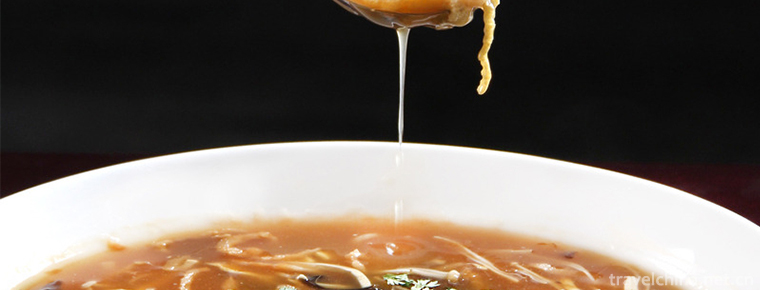
-
Pork stomach stewed chicken
Belly chicken is a very traditional dish in Hakka area. It has a long history. It was first eaten by Hakka women when they were sitting on the moon, and it had a very good nourishing effect..
Views: 242 Time 2018-11-02 -
Fish in sour soup
Sour soup fish is a traditional dish of Miao nationality in Guizhou. According to textual research, this dish originated from the Yashuang area of Leidong Town, Liping County.
Views: 209 Time 2018-11-05 -
Taierzhuang Ancient Town
Taierzhuang Ancient City, located at the center of the Beijing-Hangzhou Grand Canal, is located at the junction of Taierzhuang District, Zaozhuang City, Shandong Province.
Views: 115 Time 2018-12-08 -
Pavilion of Prince TengTengwang pavilion
Tengwang Pavilion, one of the three famous buildings in the south of the Yangtze River, is located on the East Bank of Ganjiang River along the Yangtze River Road in the northwest of Nanchang City, Ji.
Views: 166 Time 2018-12-08 -
Guanmenshan National Forest Park
Guanmenshan National Forest Park is located 70 kilometers southeast of Benxi City. The Forest Park covers an area of 3517 hectares, with an altitude of 310-1234 meters and a forest coverage .
Views: 154 Time 2018-12-24 -
Xingwen sea
Xingwenshihai is located in Xingwen County, Yibin City, Sichuan Province. It is located in the transition zone between Sichuan Basin and Yunnan-Guizhou Plateau. Its total area is about 156 square kilo.
Views: 235 Time 2018-12-24 -
Bihai Jinsha Water Paradise
Bihai Jinsha Water Paradise (i.e. Coastal Recreation Park, abbreviated as "Water Paradise") is built outside the flood control wall, along the flood control wall 1313 meters.
Views: 452 Time 2019-01-03 -
Duan Inkstone Production Techniques
Duan inkstone production technology, Zhaoqing City, Guangdong Province, traditional handicraft, one of the national intangible cultural heritage..
Views: 150 Time 2019-04-28 -
Miao Sister Festival
Miao Sister Festival, also known as "Sister Rice Festival", is a traditional festival of Miao people in Laotun and Shidong areas of Taijiang County, Guizhou Province. It is held from March 1.
Views: 117 Time 2019-06-05 -
Napo Zhuang Folk Songs
Napo Zhuang, also known as "Heiyizhuang", is a unique ethnic group among the Zhuang people. It calls itself "Min", "Zhong", "Ouch". Now there are about 518,000 .
Views: 119 Time 2019-06-06 -
Brocade Weaving Skills of the Zhuang Nationality
After thousands of years of development, the brocade has its own system of three categories, more than 20 varieties and more than 50 patterns. It is famous for its durability, exquisite skills, unique.
Views: 200 Time 2019-08-16 -
Huangze Temple
Huangze temple is the only temple for Empress Wu Zetian in China. It is located on the Bank of Jialing River in Guangyuan City, Sichuan Province. In 1961, it was listed as one of the first batch of national key cultural relics protection units by the State Council; in 2006, it was rated as a national AAAA tourist attraction..
Views: 69 Time 2020-11-08
